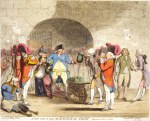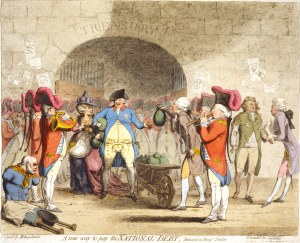by Ron Paul – Ron Paul Institute for Peace and Prosperity:
This week, events around the country will highlight the importance of parental control of education as part of National School Choice Week. This year’s events should attract more attention than prior years because of the growing rebellion against centralized education sparked by the federal Common Core curriculum.
The movement against Common Core has the potential to change American education. However, anti-Common Core activists must not be misled by politicians promoting “reforms” of the federal education bureaucracy, or legislation ending Common Core while leaving all other federal education programs intact. The only way to protect American children from future Common Core-like programs is to permanently padlock the Department of Education.
Federal programs providing taxpayer funds to public schools give politicians and bureaucrats leverage to impose federal mandates on schools. So as long as federal education programs exist, school children will be used as guinea pigs for federal bureaucrats who think they are capable of creating a curriculum suitable for every child in the country.
Supporters of federal education mandates say they are necessary to hold schools “accountable.” Of course schools should be accountable, but accountable to whom?
Several studies, as well as common sense, show that greater parental control of education improves education quality. In contrast, bureaucratic control of education lowers education quality. Therefore, the key to improving education is to make schools accountable to parents, not bureaucrats.
The key to restoring parental control is giving parents control of the education dollar. If parents control the education dollar, school officials will strive to meet the parents’ demand that their children receive a quality education. If the federal government controls the education dollar, schools will bow to the demands of Congress and the Department of Education.
So if Congress was serious about improving education it would shut down the Department of Education. It would also shut down all other unconstitutional bureaucracies, end our interventionist foreign policy, and reform monetary policy so parents would have the resources to provide their children with an education that fits their children’s unique needs. Federal and state lawmakers must also repeal any laws that limit the education alternatives parents can choose for their children. The greater the options parents have and the greater the amount of control they exercise over education, the stronger the education system.
These reforms would allow more parents access to education options such as private or religious schools, and also homeschooling. It would also expand the already growing market in homeschooling curriculums. I know a great deal about the homeschooling curriculum market, as I have my own homeschooling curriculum. The Ron Paul Curriculum provides students with a rigorous program of study in history, economics, mathematics, and the physical and natural sciences. It also provides intensive writing instruction and an opportunity for students to operate their own Internet businesses. Of course, my curriculum provides students with an introduction to the ideas of liberty, including Austrian economics. However, we do not sacrifice education quality for ideological indoctrination.
It is no coincidence that as the federal role in education has increased the quality of our education system has declined. Any “reforms” to federal education programs will not fix the fundamental flaw in the centralized model of education. The only way to improve education is to shut down the Department of Education and restore control of education to those with the greatest ability and incentive to choose the type of education that best meets the needs of American children — American parents.
Article originally posted at The Ron Paul Institute for Peace and Prosperity.











